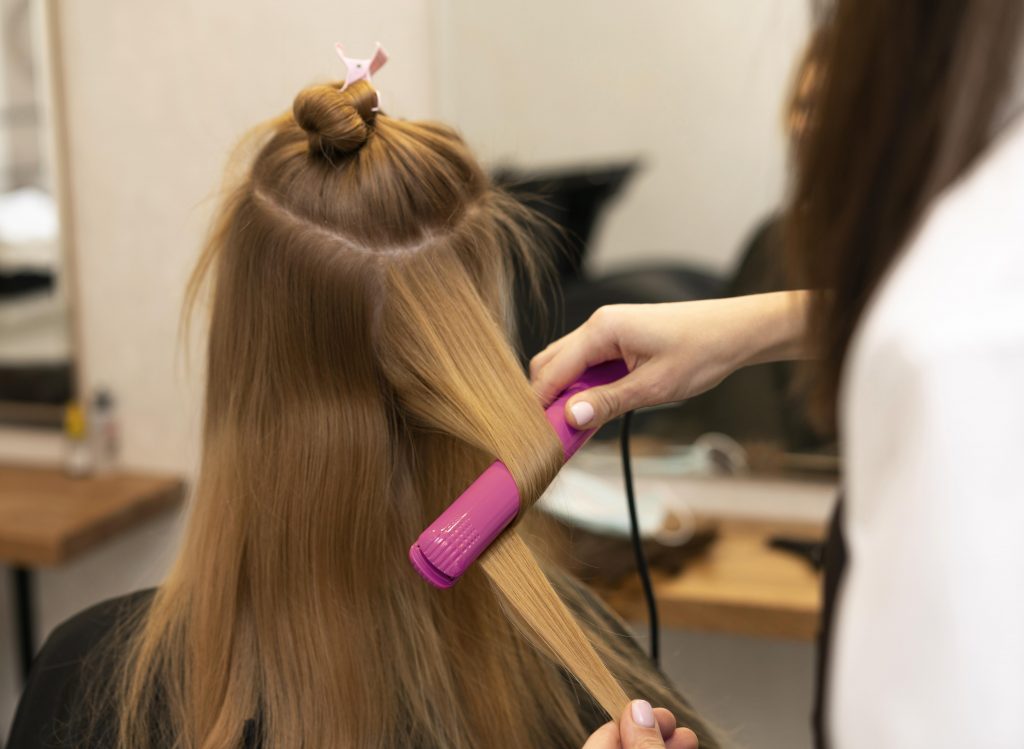Vitamins and Minerals for Hair
There are many factors influencing the number of hair falls, from disease-related symptoms to simply nutrient deficiency. Some commonly heard causes of hair falls are alopecia, thyroid problems, and lupus. Which is why it is important to know how much hair falls are normal and when you should go and seek treatment.
According to the American Academy of Dermatology, common hair falls per day are about 50 to 100 strands of hair, as we have more than about 100 000 hair follicles on the head alone. Thus, losing about 50 to 100 strands of hair per day will not cause you baldness, patchiness, or spots, but of course, if you have longer hair, losing hair is more noticeable as compared to if you have shorter hair. Also, the formation of spots, patchiness, baldness in your hair area, and the pattern of clumps of hair loss are signs that you need to seek the advice of a primary care doctor or dermatologist.

Generally, according to scientists, it is hard to quantify the normal number of hair losses since it still depends on gender, the way hair is styled, the frequency of hair styling, the frequency of hair colouring, washing, bleaching, brushing, and heat styling. It is also noted that women tend to lose more hair than men, as 40% of women style their hair a lot more than men, and because women experience certain life events that make them lose more hair, such as during pregnancy, postpartum, and menopause.

But if you are experiencing more hair loss than usual and it is not something due to diseases or life events that makes you stressed, you might need to find a solution to make your hair grow healthier again!
The answer to this is to improve your diet!
According to studies, minerals and micronutrients such as biotin are responsible for keratin production, which will help with hair growth. Vitamin C acts as a strong antioxidant to scavenge free radicals in hair follicles, resulting in strong hair roots. It also helps to produce collagen, which strengthens and prevents hair from becoming brittle and breaking. Vitamin C also helps to absorb more iron into the body, which can prevent anaemia, which can lead to more hair loss.

Another important nutrient is vitamin A. Vitamin A is abundant in yellowish-orange foods, such as carrots, but it is also present in greenish foods, such as spinach. It helps skin glands produce sebum, which will make hair less frizzy, brittle, and easily broken. Although vitamin A can improve your hair condition, too much vitamin A might be dangerous to your body and harm your hair! So, consume vitamin-rich foods moderately.
Zinc is a mineral that is essential for hair growth and repair. It also helps to keep the oil glands around the follicles working properly. Zinc-rich foods such as oysters, spinach, beef, and meat help reduce hair loss caused by zinc deficiencies.
In conclusion, identifying the type of nutrient that is beneficial for your hair health might give you an idea of what you can improve on and what you are lacking in your diet. In an effort to improve hair health, a hair care routine, such as washing hair when needed, avoiding heat styling and excessive hair styling, and avoiding exposure of hair to colourants, chemicals, etc. that can harm the hair for some time, can help improve its condition.




